What are the causes of restless legs syndrome?
There are many potential causes and risk factors for RLS. Also, RLS does not have to be associated with any underlying medical problem. Both sleep-related medical problems like sleep apnea and many seemingly unrelated. It can occur at any age, and can also occur and disappear for no apparent reason. For some, the symptoms worsen over time, and for others not. Symptoms usually get worse in those who have their first symptoms before the age of 45, but that is not always the case.
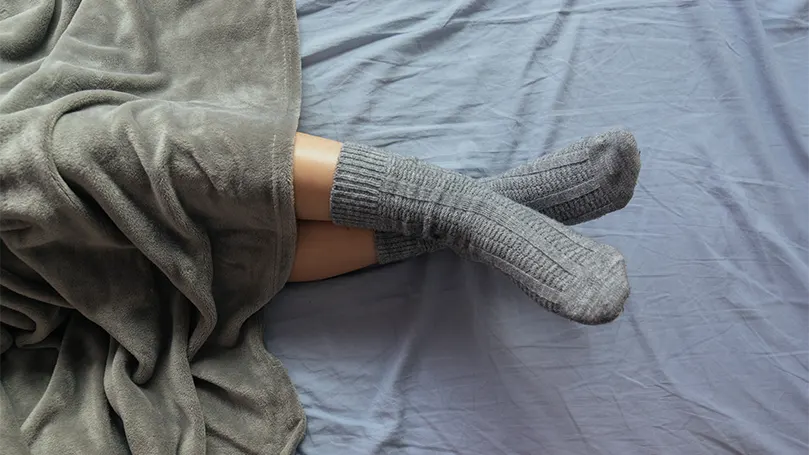
Precisely because there are so many ifs, it is sometimes very difficult to diagnose RLS. We will now focus on potential underlying medical problems that can cause RLS. You should not use our article as a substitute for professional medical advice, diagnosis, or treatment. Also you don’t have any of the following medical problems, then you should look for other types of treatments specifically for restless legs syndrome.
Iron deficiency
When you do not have enough iron stores in your body, this will lead to various symptoms, and one of them can be RLS. Iron deficiency can be a consequence of anemia, and then it is necessary to discover the cause of anemia. If you are not anemic but do not have enough iron, the causes can be pregnancy, poor diet, vigorous workouts or the body's inability to absorb iron. If RLS is caused by iron deficiency, the symptoms will usually be very severe. This can be treated with iron supplements and be careful when choosing iron supplementation.
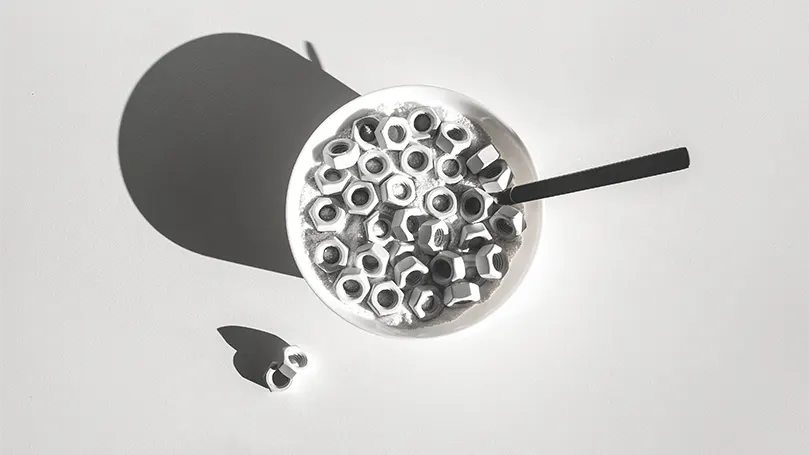
Uremia
It is recommended to give blood and urine for analysis in the laboratory at least once a year. When you get results, one of the parameters is the level of urea in your blood. If the level of urea in your blood is too high, this condition is called uremia. It is a very dangerous condition, especially for our kidneys, but also something related to RLS.
Fibromyalgia
Fibromyalgia is a disorder that is still a mystery even doctors and scientists. The main symptom is pain in the musculoskeletal system and accompanied with mood swings, drowsiness and many other symptoms. It can occur as a consequence of both physical and psychological trauma, and sometimes there is no specific trigger. Many people with fibromyalgia also complain of RLS, anxiety and irritable bowel syndrome.

Parkinson’s disease
Parkinson's disease is a progressive disease of the central nervous system that mainly affects the motor system and inevitably leads to death. But with the help of new drugs, the lifespan of those with Parkinson's is very long, sometimes over two decades from diagnosis. There is a concern among people with RLS that this is an early sign of Parkinson's, but no relevant study has confirmed this. Therefore, those who suffer from RLS should know that they are not at a higher risk for developing Parkinson's disease.

Kidney disease
Above-mentioned anemia and uremia are often associated with kidney disease, but in this case we talk about end-stage renal disease (ESRD). That is the final, irreversible stage of chronic kidney disease where the kidneys can no longer function and dialysis or transplantation are necessary. In those moments, RLS is one of the accompanying problems. It is certainly not possible to reach the ESRD unnoticed, but it lasts for years, except in the case of acute kidney failure.
Diabetes
There are several types of diabetes, and diabetes is generally a metabolic disorder that occurs because the body does not produce insulin or cells do not respond to insulin properly. This leads to high blood sugar level which over time leads to various other health complications and RLS is one of them. And RLS in diabetics is usually the result of neuropathy, damage to peripheral nerves.
Hypothyroidism
Both hypothyroidism and hyperthyroidism are conditions of your thyroid gland. Hypothyroidism means that your thyroid gland is not active enough and therefore you do not have enough hormones. The importance of the thyroid gland for the proper functioning of various bodily functions is enormous. Hyperthyroidism is a condition where your thyroid gland is overactive. Hashimoto's thyroiditis is one more common thyroid problem. All three are related to RLS.

Cardiovascular diseases
The connection between RLS and cardiovascular diseases has not been fully elucidated, but it is well-known that many who suffer from coronary artery disease report restless leg syndrome. There are even claims that RLS can increase cardiovascular risk due to so many frequent leg movements.
Smoking
Smoking can affect the RLS in two ways. The first way is acute, so it is so common that after nicotine intake, the symptoms of RLS worsen. Decades of smoking also lead to nerve damage, as well as many other parts of the body, so in the long run, smoking can be a trigger for the onset of RLS.

Caffeine beverages
It is quite clear how caffeine beverages can affect the restlessness you feel. Caffeine beverages raise our heart rate and give us energy, but in the case of RLS this is very counterproductive so caffeine beverages make RLS symptoms worse.
Rheumatoid arthritis
Rheumatoid arthritis is an autoimmune and inflammatory disease. Although there are treatments that can bring a patient into remission, cure does not exist. Because the immune system makes a mistake and attacks healthy cells, it leads to swelling, pain and other problems. The joints are most exposed. Every third patient with rheumatoid arthritis also has restless legs syndrome.
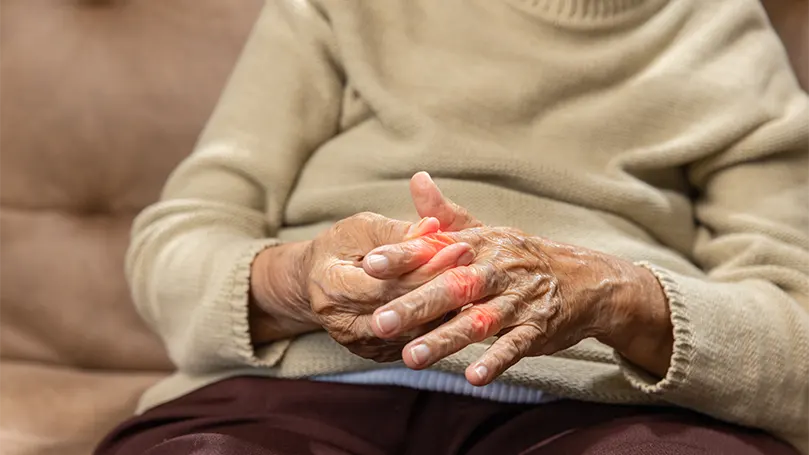
Pregnancy
Restless legs syndrome (RLS) is very common in pregnant women. According to available data, over 25% of pregnant women have symptoms of RLS. In most cases, the symptoms stop after childbirth without any therapy.
What are the main symptoms of restless legs syndrome?
Restless legs syndrome has many symptoms, but also many of these symptoms may indicate something other than RLS, so it sometimes takes months to make an accurate diagnosis. However overwhelming urge to move limbs, especially legs is certainly a clear sign that RLS at least should be considered before a formal diagnosis is made. You should also pay attention to your sleep routine and notice changes, since you may not even be aware of RLS, but it will affect your night’s sleep.
Leg/arm discomfort
Sometimes it is not just urge to move limbs but also overall discomfort in your limbs. Although it is called restless leg syndrome, you may have a similar feeling in your arms. You may need to stretch or feel a tingling sensation. If it gets worse every night, then chances are high that it’s RLS. If you have a mild version, then you probably won’t have problems every single night.

Need for moving arms/legs
This is a classic symptom that indicates RLS. When you have overwhelming urge to move your legs and the only thing that can solve your problem is just constantly moving your legs then you probably suffer from RLS. That urge can be accompanied by crawling, throbbing, itching, aching and other uncomfortable sensations.
Sleep pattern problems
RLS will significantly impair the quality of your sleep. When you have a constant urge to move your limbs before you falling asleep, it will be very difficult to concentrate on sleeping. That is why RLS often leads to insomnia, changes in sleep pattern and it is necessary to treat this condition because without a good night's sleep a person cannot function properly.
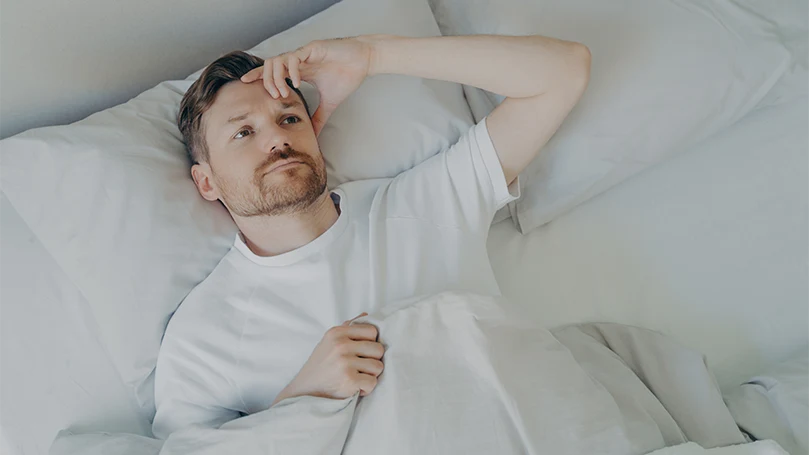
Daytime sleepiness
Daytime sleepiness is another consequence of RLS. After you could not fall asleep for hours due to RLS and then you had a restless sleep, the next day you cannot be full of energy and ready for all obligations. You will feel a lack of energy and you will be very sleepy. This condition can lead to anxiety, depression and mood swings.

Methods of treating the restless legs
The most important thing is to determine if there is an underlying medical condition that causes RLS. If you suffer from something else, then it is necessary to address that underlying problem and once you cure it, the RLS will go away. But if you have RLS without an associated condition, then lifestyle changes are necessary and in some cases prescription medications. Fortunately, you can treat RLS can very well with help of medication.
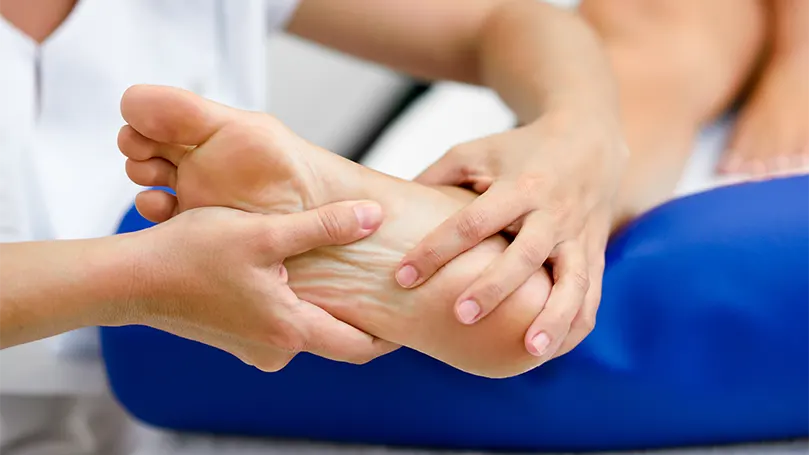
Medications that increase dopamine
Dopamine is a neurotransmitter, which means that it sends and transmits messages between nerve cells. It is very important for the functioning of the brain and nervous system, and if you have a low level of this chemical messenger then you will have problems with concentration, motivation and attention. There are numerous medications approved for treatment. Be sure to stick to the dose prescribed by your doctor, because a higher dose of these drugs can cause various side effects from nausea to compulsive gambling since brain chemical dopamine is easily disturbed.
Opioids & painkillers
Opioids are very effective in treating RLS symptoms, but they should be used only in severe RLS cases, because they are highly addictive. And it is also not easy to function when taking opioids. Painkillers can be useful because they soothe nerve activation. Painkillers vary greatly in their strength, so the doctor will determine which one you need according to the level of RLS. Sometimes even cold and allergy medications can help.

Sleep medications & muscle relaxants
Although sleep medications and muscle relaxants will help you significantly with RLS-induced sleep problems, such medications will not help relieve symptoms. And they also cause daytime drowsiness, so use it as a last resort if nothing else has helped you have a good night’s sleep.
How to stop restless legs immediately at home?
There are numerous ways to stop restless legs immediately at home. This is not possible for those with severe symptoms, but for those with mild symptoms, these will be very effective methods. Also, those who have severe symptoms will benefit if they use the following methods in addition to medication.
Compressions socks
Compression socks or compression wraps are very popular for varicose veins, accelerating muscle recovery and RLS. You are probably wondering how compressions socks can help, but the answer is very simple. Compressions socks apply pressure to your muscles and nerves, thus calming the overactive nerves. Also, rubbing and massaging can help in a similar way, but compressions socks are effective all night long.
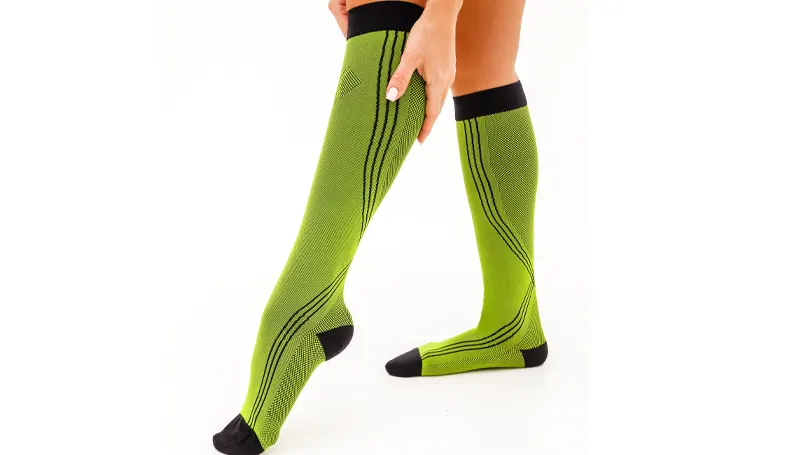
Daily exercising
Physically inactive people are much more likely to have problems with RLS than those with regular physical activity. If you can't go to the gym or play tennis, walking and jogging will be helpful. More vigorous activities are even better so if you are healthy, 150 minutes of sports activities per week is recommended. Be persistent and after a month or two you will notice a significant reduction in symptom severity. And your overall health will be improved.

Elevation when laying down
You should use a pillow to elevate your legs when laying down. This is especially useful if you are a back sleeper. Certain research has shown that using leg elevation pillow reduces the symptoms of restless leg syndrome.

Horse chestnut seed extract
Herbal medicine can cure many things or at least alleviate the symptoms of many disorders, and one of them is RLS. Horse chestnut seed extract, or Aesculus hippocastum, is recommended because of its positive effects on blood circulation. That is why it is recommended to all those who have a problem with veins, but also those suffering from RLS, because increased circulation brings relief. Consult your doctor before using horse chestnut seed extract.
Avoiding caffeine intake
We have already mentioned that caffeine beverages can negatively affect RLS, so limit or avoid caffeine intake, especially at night. Do not consume coffee and other caffeine beverages after 3 PM. If you drink caffeine beverages at night, they can aggravate RLS symptoms or even cause RLS, because you will not be able to fall asleep and then you will become nervous.
Baths & massages
Before going to sleep, you should take advantage of a warm bath. Warm bath will relax your muscles, and then you can massage muscles. Bath plus massage will bring you a huge relief and you will be able to fall asleep easily. You can also wear compression socks afterwards.
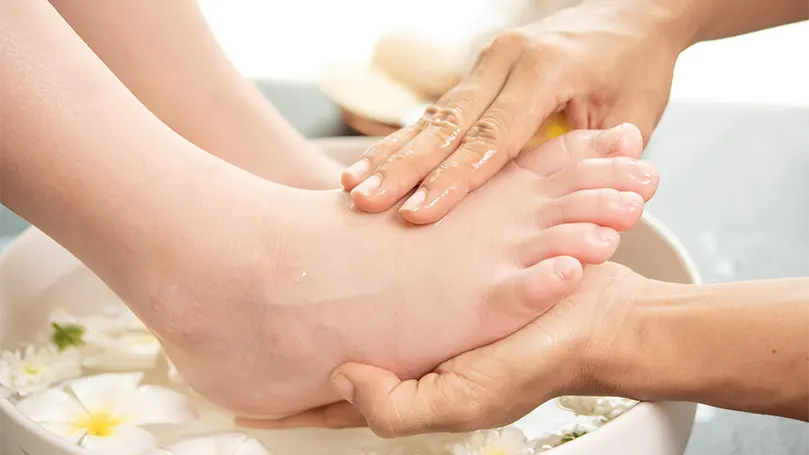















There are no comments yet
"*" indicates required fields